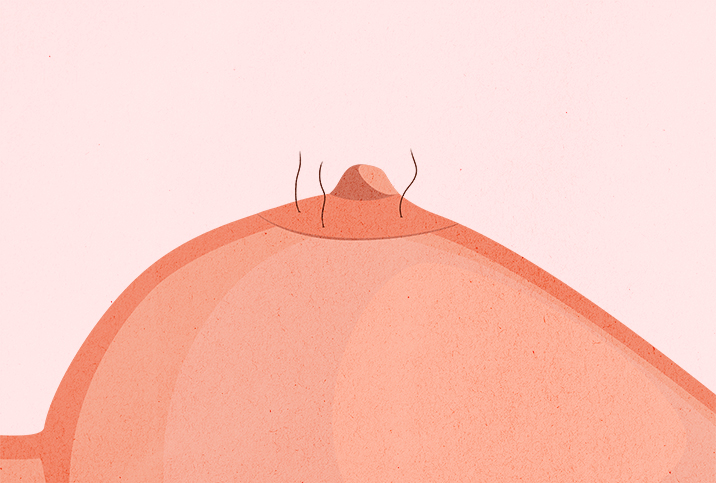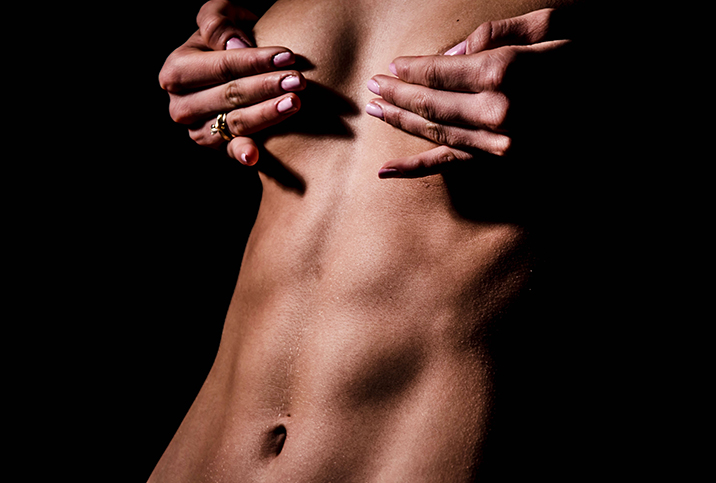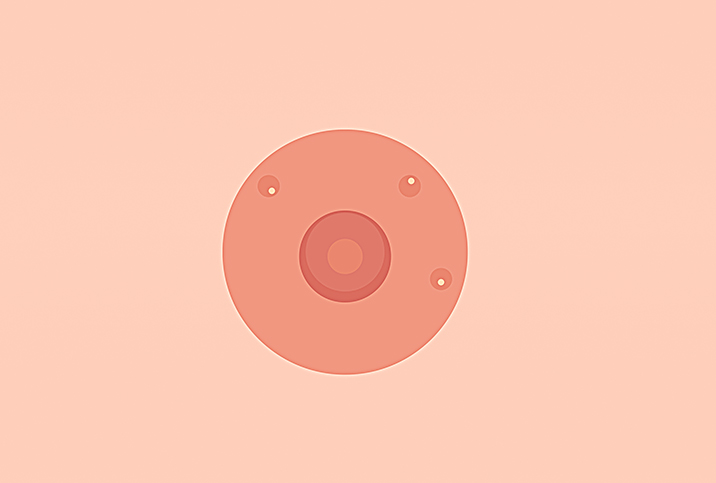I Have Nipple Hair! Do All Women Have Hairy Nipples?

Nipple hair: Some women have a lot, some have a little, and sometimes it pops up out of nowhere. You may not have ever thought about hairy nipples before, or perhaps it makes you feel self-conscious about your boob.
Are hairy nipples normal? When should a woman be concerned? And if you want to remove it, what's the best way to go about it? We spoke with experts to get the scoop on this hairy situation.
Is nipple hair normal for a woman?
When it comes to nipple hair, according to Constance Chen, M.D., board-certified plastic surgeon and breast reconstruction specialist, there is no normal. "Human beings have hair all over their body," Chen said. "Sometimes human hair is thin and clear and sometimes it's thicker and darker. Some women have darker visible hair around their nipples."
In other words, nipple hair, or periareolar hair if you want to get technical, is pretty common in women. So, odds are your nipple hair is perfectly fine.
Megan Gray, M.D., an OB-GYN with Orlando Health Physician Associates said it's rarely a cause for concern. "It can vary from a few sparse hairs to dense hair along the outside circumference of the areola. The amount of hair often varies based on ethnicity," she explained.
Is a hairy nipple in a woman ever a sign of an underlying condition?
Are there ever situations where nipple hair is cause for worry? According to both Chen and Gray, not really. Chen said hair can sometimes grow in response to pregnancy or menopause.
As with many other fun things that happen to your body during pregnancy, hormones are responsible for extra hair growth. The same happens during menopause. It's estrogen that's responsible for hair growing on other parts of your body, including your face, and yes, your nipple area.
It can also be a side effect of some medications. Testosterone, some immunosuppressants, and corticosteroids, such as prednisone, can all cause excess hair growth.
However, there are a handful of circumstances where excessive nipple hair, in combination with other factors, could indicate a hormonal imbalance. In cases like this, you would want to talk with your healthcare provider.
According to Gray, these additional factors include:
- Excessive hair growth on areas of the body usually found in men, such as lower jaw, mid chest, upper inner thighs, upper/lower back
- Skin discoloration along the back of the neck or upper inner thighs
"These findings are suggestive of possible underlying problems, such as PCOS or Cushing's syndrome, which require further evaluation," said Gray.
Polycystic ovary syndrome (PCOS) is a common hormone condition affecting about 1 in 10 women during their reproductive years. Symptoms can include irregular periods, acne and excess body hair.
Of those with Cushing's syndrome, 70 percent are women. Having this syndrome means there's too much cortisol in your body, the hormone that manages your metabolism, controls the balance of water and salt in your body, as well as regulates blood pressure. Weight gain, thicker body hair and thin skin are some signs of Cushing's.
Should you remove nipple hair?
"If someone wants to remove the hair, it's important to be aware of pain and infection from nicking the skin, irritation or ingrown hairs," Chen explained. "At the end of the day, it's not necessary to remove the hair if you have sensitive skin and tweezing the hair causes pain."
It's a sensitive area in general, right? A lot of nerves are located here, so if you do choose to remove your nipple hair, be sure to use a safe method that will minimize the risk of irritation and infection:
- Trimming: You can use scissors (be careful you don't cut yourself) to trim the hair to the level of your skin, according to Gray.
- Plucking or waxing: Ouch. This can be uncomfortable, but hey, it's an option.
- Shaving: Also works, but due to the shape of the breast, you can easily nick yourself. "You have to be aware that as with anywhere you're removing hair, either from the root or shaving, you're at risk for developing ingrown hairs and infections," Grey cautioned.
- Electrolysis and laser hair removal: These are semi-permanent and permanent options, but according to Gray, are painful, too. They can also require multiple treatments to get the job done.
Remember: hair growth on your nipples is very common and rarely anything to worry about. Different amounts and textures are perfectly normal and it should always be a personal choice whether you want to keep or remove any type of body hair. But if you do have concerns, be sure to ask your healthcare provider for their advice.


















